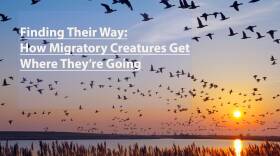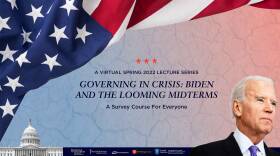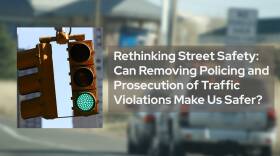-
Amazon Deforestation: Why it matters to us
The Amazon Rainforest is known as the "lungs of the earth" because it draws in carbon dioxide and breathes out oxygen. But it is also the biological heart of the planet's hydroclimate system, the planet's rain making machine. We have lost almost 20 % of the forest and are close to reaching a tipping point where it will turn to grassland. What will that mean for us, and how can we prevent the dieback? We can calm the weather and cool the planet within one generation by protecting and reforesting the rainforests of the planet and reshaping food production in those areas from open canopy monocultures to largely closed canopy forms of agroforestry/permaculture. This massive regeneration process restores the disrupted water cycle on a micro and macro level, restores degraded soils and dampens the destructive effects of extreme weather events. If the world embraces this regenerative work at the scale and speed of the challenge, we can avert a climate catastrophe and the collapse of biodiversity while massively improving food-security, substantially reducing poverty and meeting most of the UN's Sustainable Development Goals. Jon Schull, co-founder of the EcoRestoration Alliance will moderate a discussion with panelists Rob de Laet, co-founder of the World Climate School and Atossa Soltani, founder of Amazon Watch and director Global Strategy for Amazon Sacred Headwaters Initiative. Our speakers will show us how massive regeneration can restore disrupted water cycles and degraded soils and moderate the destructive effects of extreme weather events. A full holistic way to support forest economies that don't rely on cutting down trees and paradoxically killing the forests is possible. This program is hosted by the GBH Forum Network and its partner organization, Biodiversity for a Livable Climate.Partner:Biodiversity for a Livable Climate -
Great Decisions | Changing Demographics
The world experienced remarkable demographic changes in the 20th century that continue today and have resulted in far-reaching social, economic, political, and environmental consequences all over the globe. These consequences are creating mounting challenges to development efforts, security, the environment, as well as the sustainability of human populations. How will changing demographics impact the future? Join us at the Boston Public Library for our first in-person Great Decisions program since 2020! This program will simultaneously be streamed to Zoom from 6:00 to 7:00 PM ET.Partner:WorldBoston -
Finding Their Way: How Migratory Creatures Get Where They’re Going
Migratory birds and other such creatures can navigate vast distances to annual retreats and nesting sites because they are endowed with magnetoreception. Dr. Walcott explains the biological adaptations that enable the connection to Earth’s magnetic field. He describes his pioneering work on the homing pigeon, one of the major sources of evidence for magnetoreception. Dr. Walcott also discusses some other interesting sensory mechanisms, such as spiders that “hear” with their legs. IMAGE CREDIT: BBC & treehugger.orgPartner:Science for the Public -
Midterm Pulse Check: Can Biden’s Party Beat the Odds?
There is a widespread expectation that the Democrats will suffer losses in the 2022 midterms at all levels. This would not be unusual, since it is a regular pattern in which the party of the president in office loses ground in midterm elections. The political environment is challenging, with pain at the gas pump, inflation stretching pay checks, pandemic fatigue, disappointment with what Biden has not been able to deliver, the war in Ukraine, and bitter partisan divisions over hot button issues. Will Biden’s performance amidst all this bad news be rewarded or punished at the polls? The closing episode of this series will examine the state of the state —and the race— as we approach midterms. Experts in political economy, polling, campaigning, and presidential politics will unpack what’s important and pull out their crystal balls to look ahead to what will happen in November.Partner:Ford Hall Forum -
Can Having Good Friends Prolong Your Life
Research is providing us with more and more proof that having friends is beneficial, if not essential, to good health. Many people are aware of the detrimental effects that social isolation and loneliness can have on physical and mental wellbeing, but fewer appreciate the advantages of keeping our important relationships close and personal. University of Oxford data shows that best friends’ physiology comes into synchrony – the rhythm of their hearts, body temperatures and hormonal responses match. Human touch also slows the heartbeat, lowers blood pressure and the stress hormone cortisol. So our interaction with good friends actually keeps us alive and helps us live longer!Partner:Cambridge Forum -
Rethinking Street Safety
**Can Removing Policing and Prosecution of Traffic Violations Make Us Safer?** Long before the racial reckoning of 2020, discrimination in police traffic enforcement has been apparent, from the beating of Rodney King in 1991 to the death in police custody of Sandra Bland in 2015. Time and again, research demonstrates that traffic stops result in negative outcomes for Black and brown drivers. And as police enforcement increases, so have serious crashes and traffic fatalities. While many continue to argue that police enforcement and prosecution of traffic violations are necessary for public safety, a growing body of research shows otherwise—and suggests they may even make our communities less safe by overwhelming the criminal legal system, contributing to racial disparities in exposure to policing and prosecution, and eroding public trust. Join Harvard’s Rappaport Institute for Greater Boston, the Harvard Kennedy School’s Program in Criminal Justice Policy and Management, and LivableStreets Alliance for a virtual panel discussion hosted by the GBH Forum Network. Expert panelists will discuss their new research on the role of policing and prosecution in traffic enforcement and answer audience questions. ## Research: [- Presumptive Declination and Diversion in Suffolk County, MA - Felix Owusu, March 2022 ](https://www.hks.harvard.edu/sites/default/files/Taubman/RIGB/Presumptive%20Declination%20and%20Diversion%20in%20Suffolk%20County%2C%20MA.pdf) IMAGES: [“Police Pulled Someone Over” by bradleygee. Image Cropped and Blurred. CC BY 2.0.](https://www.flickr.com/photos/13951072@N00/4712654618) ["Traffic Light" by grendelkhan. Image cropped. CC BY-SA 2.0.](https://www.flickr.com/photos/98425334@N00/400428874)Partner:LivableStreets Alliance -
Power Shift: How The Big Quit Is Shaping the Future of Work
Even as offices reopen and masks come off, one of the most ubiquitous disruptions of the COVID-19 pandemic lingers: a profound change in the way we execute, imagine and feel about work. The initial shock of shutdowns and layoffs was followed by a robust rebound and -- a shortage of workers. Especially in the service sector, many never returned to jobs with uncertain hours, low pay and a heightened risk of COVID exposure. Across the economic spectrum people are taking stock of what matters most and reordering their priorities. People are not just changing jobs, but also the way work factors into their identity. “I don’t dream of work,” has become a popular social media hashtag, as has “I quit my job.” GBH News captured the stories and the spirit of this moment in our series [The Big Quit](https://www.wgbh.org/news/the-big-quit) , profiling local people who - by choice or circumstance - have made major changes during the pandemic. Join us virtually for a discussion moderated by Stephanie Leydon, Director of Special Projects at GBH News, with Leslie Forde, Founder and CEO of Mom’s Hierarchy of Needs, Mark Melnick, Director of Economic and Public Policy Research at the Donahue Institute at the University of Massachusetts Amherst, and Lauren Jones, Executive Vice President of the Massachusetts Business Roundtable. Together they will examine what happens next in our state as the economy adjusts to changed expectations, new challenges and an empowered workforce.Partner:GBH Forum Network -
Distinguishing Scientific Facts from Disinformation and Distortion
Vested interests have the resources to distort public information about important issues such as climate change, fossil fuels, nuclear energy. Elliott Negin has been confronting artificial facts for years. In this discussion, he provides examples of disinformation and explains when to be suspicious and how to get the real facts.Partner:Science for the Public -
Taking Stock: Biden’s Equity Agenda
Upon assuming office, President Biden proposed an ambitious equity agenda, designed to address systemic racial, gender, ethnic and economic disparities. One year into his Presidency, we will examine his record. He has made some historic picks to lead his Administration and nominated the first black woman to serve on the Supreme Court. However, even a much scaled down social spending bill—which would have delivered some of the most consequential investments in the social safety net since the New Deal—seems dead in the water. The Biden Administration’s efforts to address voting rights, immigration policy and economic inequalities have been stalled by a deeply divided Congress. GBH News Senior Reporter Phillip Martin leads a panel discussion to examine the present impact and future fate of Biden’s equity agenda, the fierce backlash, and how this is likely to influence voter enthusiasm in the midterms. This series builds upon Suffolk University’s historic mission of access, opportunity, and engagement with our alumni and the communities to which we belong. It’s sponsored by the Department of Political Science and Legal Studies in collaboration with the Ford Hall Forum, The Washington Center and GBH’s Forum Network.Partner:Ford Hall Forum -
Hot Buttons - An Unprecedented Court
We examine the nation’s top court and its power to determine the direction of a host of hot button issues. With the court's actions to leave an abortion law in place last fall, we look to what the public should expect in laws on privacy and reproductive rights this spring. As the court signals its willingness to reconsider precedents, we will look at what other laws may be up for grabs. Our expert panel will examine how the current court see issues like gay marriage, gun rights, and religion from various perspectives. Panelists: Gary Lawson, Boston University Law Professor Melissa Murray, New York University Law Professor Jed Handelsman Shugerman, Fordham Law School Professor Moderator: Michael J. Gerhardt, Burton Craige Distinguished Professor of Jurisprudence IMAGE CREDITS: [The U.S. Supreme Court” by Geoff Livingston. Image cropped and blurred. CC BY-NC-ND 2.0.](https://www.flickr.com/photos/9397412@N06/32889246102) [“A protester against the confirmation of U.S. Supreme Court nominee Brett Kavanaugh outside the Warren E. Burger Federal Building in St. Paul, Minnesota” by Lorie Shaull. Image cropped. CC BY-SA 2.0.](https://www.flickr.com/photos/11020019@N04/29600407857) "A protester against the confirmation of U.S. Supreme Court nominee Brett Kavanaugh outside the Warren E. Burger Federal Building in St. Paul, Minnesota" by Lorie Shaull. CC BY-SA 2.0.Partner:JCC Greater Boston









